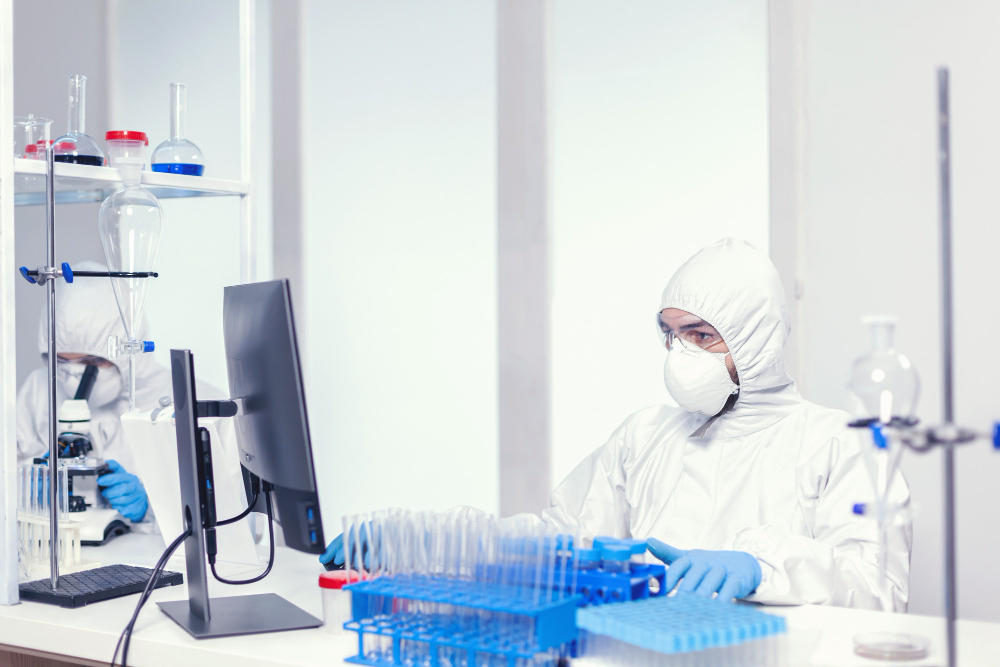How to Choose the Ideal High-Throughput Screening Service for Your Research Needs
As research evolves, the demand for faster and more precise tools like high throughput screening (HTS) continues to rise. HTS allows researchers to test numerous samples efficiently, expediting drug discovery and biological research.
However, selecting the right HTS service provider is a critical decision that significantly influences research outcomes. This article explores six essential factors to consider when evaluating HTS providers.
Furthermore, this ensures you make an informed choice tailored to your project goals.
What is High-Throughput Screening?
High throughput screening (HTS) is a technology that facilitates the rapid analysis of large datasets, helping identify biologically relevant compounds, antibodies, or genes.
Leveraging automation, HTS conducts thousands of tests quickly, revolutionizing fields like drug discovery, genomics, and biotechnology.
Modern HTS employs robotics and advanced analytics, offering accurate insights into cellular responses, gene expression, and potential drug efficacy.
This efficiency minimizes time and resource investments, accelerating the development of treatments for critical health challenges.
How Does High Throughput Screening Work?
In its most common form, high throughput screening (HTS) is an experimental process that screens 103–106 small molecule compounds of known structure in parallel.
Moreover, other substances, such as chemical mixtures, natural product extracts, oligonucleotides, and antibodies, may also be screened.
Additionally, HTS typically aims to screen 100,000 or more samples daily. Therefore, relatively simple and automation-compatible assay designs, robotic-assisted sample handling, and automated data processing are essential.
HTS uses automated equipment to quickly test thousands to millions of samples for biological activity at the model organism, cellular, pathway, or molecular level.
To find compounds (referred to as hits) having pharmacological or biological action, pharmaceutical and biotechnology industries frequently use HTS.
In the process of finding and developing pharmacological probes or drugs, these serve as the foundation for optimizing medicinal chemicals.
Traditional HTS typically analyzes each chemical in a compound library at a single concentration, usually 10 μM. In contrast, HTS assays are typically conducted in 96-, 384-, or 1536-well formats in microtiter plates.
Read More: What Is A Brain Tumor? Answered: 6 Primary Signs That You Should Watch Out For!
Key Factors for Selecting a High-Throughput Screening Service
Now that you know what High Throughput Screening is, it is time for you to learn about all the things you must do while selecting the right service for you.
Advanced Screening Technology
First, the provider’s technology significantly impacts HTS accuracy and scalability. Look for state-of-the-art tools like automated liquid handlers, multi-mode plate readers, and high-content imaging systems. Additionally, outdated equipment can lead to unreliable results or inefficiencies.
Questions to Ask:
- What screening platforms are used?
- How is equipment maintained and updated?
- Can the provider handle both small and large-scale projects?
To explore solutions tailored to your project, check out Kyinno’s cell line generation service for cutting-edge in-vitro research tools.
Data Management and Analysis Capabilities
Secondly, effective data management is crucial for meaningful results. Providers with robust bioinformatics tools, advanced data visualization systems, and secure storage offer an edge in interpreting complex datasets.
Considerations:
- Does the provider offer both raw and analyzed data?
- What software tools are used for analysis?
- How accessible and secure is the data?
Expertise and Support
Next, expertise in assay development and troubleshooting is a hallmark of a reliable HTS provider. Furthermore, collaborative support ensures experiments are optimized for accuracy and efficiency.
Key Questions:
- What is the team’s experience with HTS?
- Are consultation and troubleshooting services available?
- Is project management support provided throughout the study?
Flexibility in Assay Design
Customizable screening solutions ensure that unique project requirements are met. Providers offering tailored assay formats, target selection, and compound libraries deliver more relevant results.
Considerations:
- Can assays be adapted to specific research needs?
- Are flexible options available for project modifications?
Cost and Turnaround Time
Balancing affordability and quality is essential. Transparent pricing and adherence to deadlines are critical for seamless project execution.
Questions to Ask:
- What is the total cost, including additional services?
- Are turnaround times reasonable?
Reputation and Client Feedback
Finally, a provider’s reputation reflects its reliability and expertise. Additionally, testimonials, case studies, and collaborations with reputable organizations can offer insights into their credibility.
Key Questions:
- Are there client reviews or case studies available?
- How long has the provider been in the industry?
- Do they have established partnerships or collaborations?
High Throughput Screening Benefits: Why Should You Choose It?
High Throughput Screening (HTS) is a revolutionary technique in research that accelerates the discovery process by allowing scientists to test thousands of compounds quickly and efficiently. It’s like having a powerful tool that speeds up experiments while ensuring accuracy and reliability.
Here’s why HTS is so beneficial in research.
1. Time Efficient
First, HTS saves an incredible amount of time. Traditional methods of testing one compound at a time are slow and tedious. Additionally, with HTS, researchers can screen hundreds or even thousands of samples simultaneously. This significantly cuts down the time it takes to identify potential leads for drug development or biological studies.
2. Cost-effective
Another advantage is its cost-effectiveness. While setting up HTS might seem expensive initially, the ability to screen many compounds simultaneously means fewer resources are wasted on ineffective options. Additionally, this efficiency ultimately reduces the cost of research in the long run.
3. Accuracy
HTS is also highly accurate and reproducible. The automation involved minimizes human error, ensuring that results are consistent. Moreover, this precision is crucial when identifying compounds that could lead to medical, agriculture, or biotechnology breakthroughs.
4. Opens New Doors
HTS supports innovation by uncovering new possibilities. It allows researchers to test diverse libraries of compounds, increasing the chances of discovering something novel. This versatility is especially important in drug discovery, where identifying new treatments can save lives.
5. Sustainable
Lastly, HTS contributes to sustainability. Using smaller sample volumes and optimizing resource use aligns with the growing need for environmentally friendly research practices.
Conclusion
In conclusion, selecting the right HTS provider is crucial to achieving successful research outcomes.
By prioritizing advanced technology, data management, expertise, and flexibility, you can ensure your project is executed efficiently and yields high-quality results.
For customized solutions that integrate cutting-edge tools and expertise, consider partnering with Kyinno’s trusted cell line generation service to accelerate your research journey.
Read Also:
- Tips Every Aspiring Nurse Should Know.
- 5 Tips to Take Care of Your Sensitive Skin.
- What Is Red Light Therapy & What Are Its Main Benefits?



